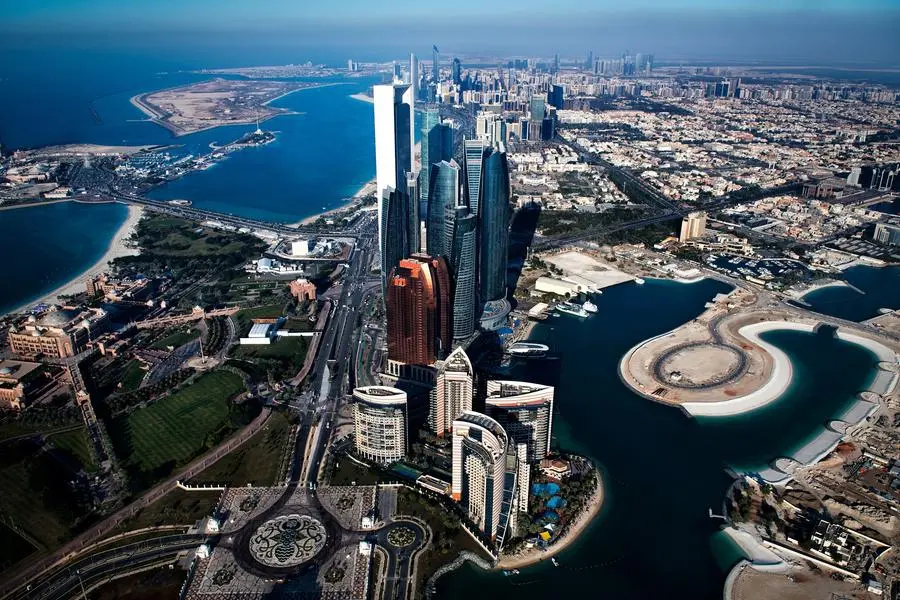PHOTO
The Department of Culture and Tourism – Abu Dhabi (DCT Abu Dhabi) has announced new initiatives aimed at promoting sustainability within the tourism industry, enabling partners to adopt and apply sustainable practices.
These initiatives align with Abu Dhabi’s vision of becoming a sustainable tourism destination and comprise three key initiatives: the launch of six sector-specific Sustainable Tourism Guidelines; the development of a Carbon Calculator to estimate the hotel industry’s carbon footprint baseline in Abu Dhabi, and an energy saving audit for all hotels in the emirate.
DCT Abu Dhabi’s sustainability framework for the tourism industry is guided by the UN Sustainable Development Goals and is in line with the United Nations World Tourism Organisation’s Vision for 2030, providing a clear roadmap for travel agents, tour operators and other entities to achieve a more sustainable and inclusive business. It is also informed by global travellers’ concerns about the environment and their interest in sustainable travel.
Saeed Ali Obaid Al Fazari, Executive Director, Strategy Sector at DCT Abu Dhabi, said, “Incorporating sustainability into the tourism industry is a vital component of Abu Dhabi’s economic success and essential to enhancing quality of life for both residents and visitors. By collaborating with our hospitality and event partners, we can pave the way for a more sustainable future. As we mark the Year of Sustainability, we are proud to launch these initiatives that reflect our commitment to protecting Abu Dhabi’s resources, cultural assets, and environment for future generations. Through these efforts, we aim to ensure that people can continue to experience the emirate’s unique cultural and tourism offerings for years to come.”
Sustainable Tourism Guidelines
Announced at Arabian Travel Market 2023, the Sustainable Tourism Guidelines have been developed by DCT Abu Dhabi to increase awareness and knowledge among stakeholders, encouraging the adoption of sustainable practices across the tourism industry. The guidelines provide valuable resources for stakeholders to establish sustainability practices and implement efficient and sustainable initiatives and solutions.
The Sustainable Tourism Guidelines provide actionable recommendations across sustainability categories, including culture and heritage sites; events; food and beverage; hotels; leisure and entertainment attractions; travel agents; and tour operators. The implementation of these guidelines can help the tourism industry in Abu Dhabi make a valuable contribution to efforts aimed at tackling the impacts of climate change.
The guidelines can be downloaded through the following link: www.dctabudhabi.ae
Carbon Calculator to estimate industry baseline for carbon footprint
As the regulator of the emirate’s tourism industry, DCT Abu Dhabi is developing a Carbon Calculator to estimate the carbon footprint of all hotels in the emirate, thereby enabling DCT to establish the overall industry baseline for carbon emissions. By analysing sources of carbon emissions, DCT Abu Dhabi will establish a feedback mechanism to reward the most sustainable hotels, while supporting those with room for improvement.
The carbon footprint baseline will also enable the subsequent setting of reduction targets, allowing DCT Abu Dhabi to promote progress and a more sustainable future for tourism in the emirate.
An energy saving audit for Abu Dhabi hotels
DCT Abu Dhabi is taking further steps towards sustainable tourism by facilitating energy audits for all hotels in the emirate. This initiative identifies the most effective energy-saving solutions that will have a positive impact on the environment. Upon the completion of the audit, DCT Abu Dhabi will use the findings to provide hotels with recommendations on practices that will reduce carbon footprint.
Progress and findings of both the Carbon Calculator and hotel audit initiatives will be shared ahead of the 28th Conference of the Parties to the UN Framework Convention on Climate Change (COP28), taking place in Dubai in November 2023.





















